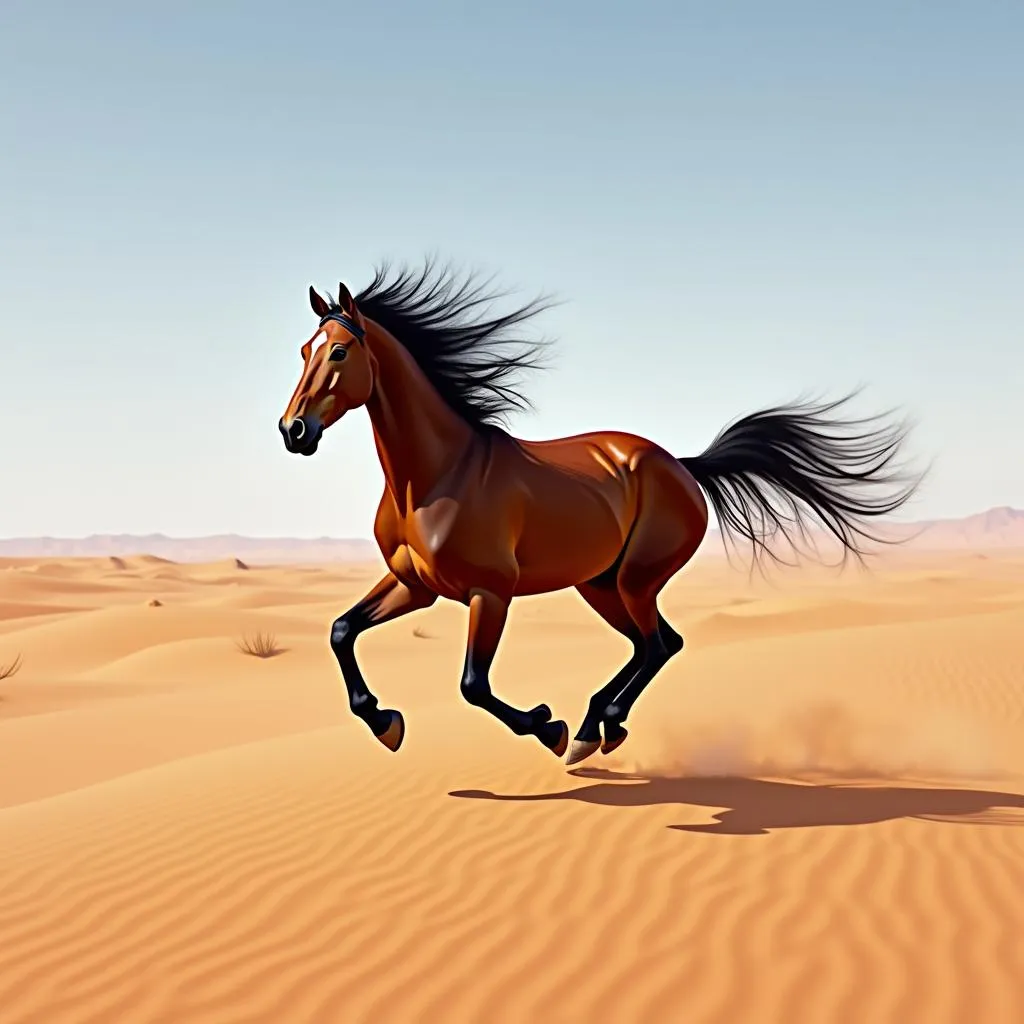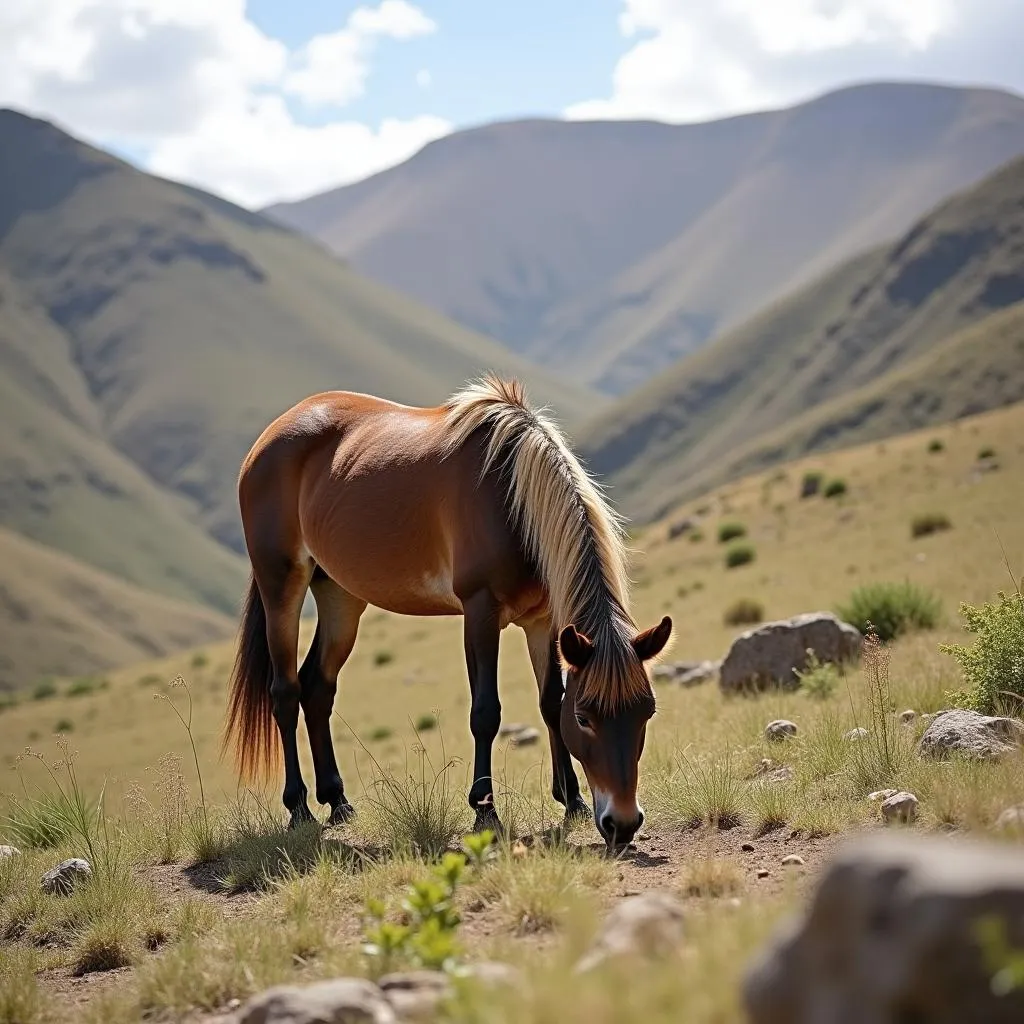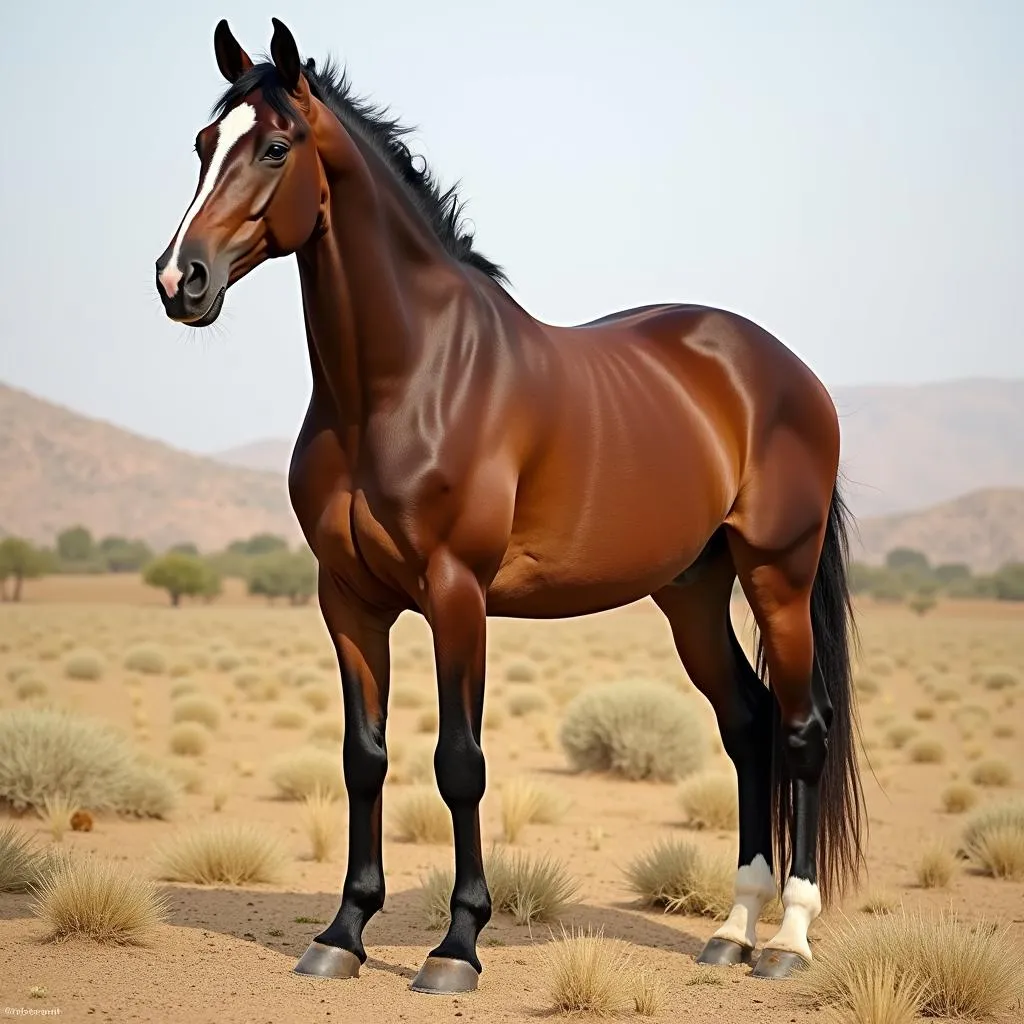African Horse Breeds: A Journey Through History and Heritage
African horses are a testament to the continent’s rich history, diverse landscapes, and cultural traditions. From the swift Barbary steeds of North Africa to the hardy Basotho ponies of the south, each breed has a unique story to tell. This article delves into the fascinating world of African Horse Breeds, exploring their origins, characteristics, uses, and cultural significance.
A Tapestry of Breeds
Africa boasts a vast array of horse breeds, each adapted to its specific environment and the needs of the people who have lived alongside them for centuries. These breeds are not just beautiful and powerful animals but also crucial parts of the continent’s cultural heritage.
The North African Barb
The Barbary horse, originating in North Africa, is known for its exceptional speed and stamina. These horses were prized by Roman legions and have played a vital role in warfare and trade throughout history. Their muscular build, strong legs, and fiery temperament make them ideal for endurance riding and equestrian sports.
“The Barbary horse is a symbol of North African resilience and a testament to the close bond between horse and rider,” says Professor Amina Khalil, a renowned equine historian.
The Arabian Influence
The Arabian horse, another breed with a long and distinguished history, has also significantly influenced the horse breeds of North Africa. Arabs have been traded throughout the continent for centuries, contributing to the development of several breeds, including the Akhal-Teke and the Thoroughbred.
The Hardy Basotho Pony
Moving south, we encounter the Basotho pony, a small but sturdy breed native to Lesotho. The Basotho pony is a symbol of the Basotho people, who have used them for transportation, farming, and leisure for centuries. Their small size and sure-footedness allow them to navigate the rugged mountain terrain of Lesotho, making them ideal for herding cattle and navigating challenging landscapes.
“The Basotho pony is more than just a horse; it’s a part of our identity, a reflection of our resilience and our connection to the land,” shares Chief Maphathe Mohale, a respected elder from the Basotho community.
Beyond the Saddle
African horses are more than just beasts of burden; they play a vital role in the cultural lives of many communities. In many regions, horses are central to traditional ceremonies, rituals, and celebrations. Their presence adds grandeur to weddings, funerals, and religious festivals, showcasing the beauty and power of these animals.
The Horse in Art and Folklore
Throughout Africa, horses feature prominently in art, literature, and folklore. From the intricate carvings and paintings of ancient Egypt to the rich tapestry of oral traditions in various communities, the horse is a constant presence. It represents strength, freedom, and the spirit of the people.
Challenges and Conservation
Despite their rich history and cultural importance, many African horse breeds face challenges, including habitat loss, crossbreeding, and lack of conservation efforts. Preserving these unique breeds requires conscious efforts to protect their genetic heritage and ensure their continued existence for future generations.
The Importance of Conservation
The preservation of African horse breeds is not just about saving animals; it’s about safeguarding a crucial part of the continent’s cultural heritage. These horses are living embodiments of centuries of tradition and are essential for understanding the rich tapestry of African history and identity.
Looking Ahead
As we move forward, it’s essential to recognize the significance of African horse breeds and work towards their conservation. Supporting breeding programs, promoting awareness, and investing in research are crucial steps towards ensuring that these incredible animals continue to thrive in the heart of Africa.
FAQs
1. What are some of the most popular African horse breeds?
Some of the most popular African horse breeds include the Barbary horse, the Akhal-Teke, the Basotho pony, and the Somali horse.
2. What are some of the challenges faced by African horse breeds?
Challenges faced by African horse breeds include habitat loss, crossbreeding, and lack of conservation efforts.
3. What can be done to conserve African horse breeds?
Conserving African horse breeds requires conscious efforts to protect their genetic heritage, including supporting breeding programs, promoting awareness, and investing in research.
4. How do African horse breeds play a role in culture?
African horses are central to traditional ceremonies, rituals, and celebrations. They are also featured prominently in art, literature, and folklore, representing strength, freedom, and the spirit of the people.
5. Why is it important to preserve African horse breeds?
Preserving African horse breeds is crucial for safeguarding a vital part of the continent’s cultural heritage. These horses are living embodiments of centuries of tradition and are essential for understanding the rich tapestry of African history and identity.
6. How do I learn more about African horse breeds?
You can learn more about African horse breeds by researching online, visiting museums and cultural centers, and attending equestrian events.
7. Where can I find more information about African horse breeds?
You can find more information about African horse breeds on the African Life website, where we regularly publish articles about the continent’s culture and heritage.
 Arabian horse in the Sahara Desert
Arabian horse in the Sahara Desert
 Basotho Pony grazing in Lesotho
Basotho Pony grazing in Lesotho
 Barbary horse in Morocco
Barbary horse in Morocco
African horses are a unique and valuable part of the continent’s heritage. By understanding their history, characteristics, and cultural significance, we can appreciate the rich tapestry of African Life and work towards the conservation of these incredible animals for future generations.


